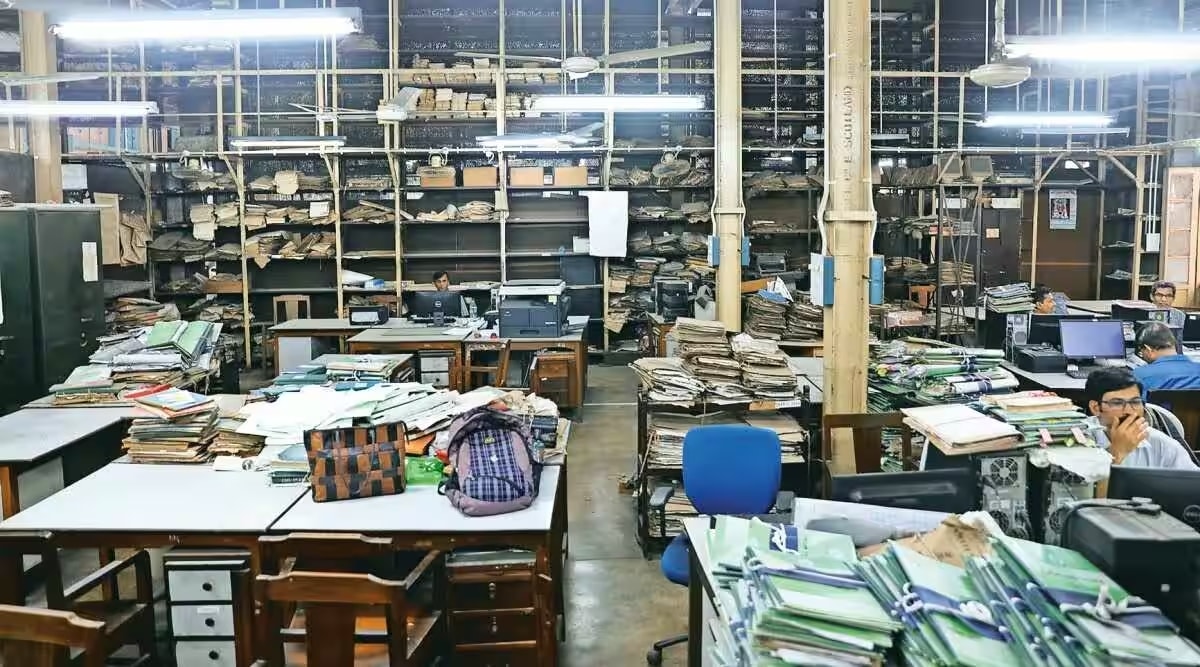The Ministry of Railway, Public sector construction company NBCC (India) Limited, and Ministry of Coal – the Central Vigilance Commission (CVC) has mentioned in its annual report-2022 that these are three departments among 16 departments which did not take proper departmental action despite being advised by them.
The report, which was already submitted to the Centre states the Commission has observed that in 2022, there were some significant deviations from the Commission’s advice.

“Whenever the Ministry/Department proposes to differ from or not to accept any advice of the Commission, a procedure has been laid down in terms of the Department of Personnel & Administrative Reforms, which prescribes that in those cases of officers for whom the Appointing Authority is the President, (orders are required to be issued in the name of the President), a reference is to be made to the Department of Personnel & Training (DOPT) before the Ministry/Department finally decides such cases,” the report said.
“Some delays have been noticed at various levels of processing of the complaints along with the level at which decisions are to be taken by the competent authorities… Non-acceptance of the Commission’s advice vitiates the vigilance process and weakens the impartiality of the vigilance administration. However, there are cases of deviation from prescribed procedure or non-acceptance of the Commission’s advice,” it states.
According to the report, there are total 27 numbers of deviation cases and there are total 16 department/organisation. “7 cases of Ministry of Railway, 3 cases of NBCC (India) Limited, two cases of; Ministry of Coal, State Bank of India, Nuclear Power Corporation of India Ltd, and 1 case of Delhi Jail Board, Delhi Transco Ltd, Ministry of Textiles, DSIIDC, Bird Group of Companies, Bharat Coking Coal Ltd, SIDBI, Industrial Development Bank of India, New India Assurance Company Ltd, V.O. Chidambaranar Port Authority, and Bharat Sanchar Nigam Ltd,” the report said.
“While examining cases received for advice, it has been noted that on some occasions the laid down procedures are not followed. It includes failure on part of the Disciplinary Authority to consult the Commission and/or Department of Personnel & Training, delays in seeking advice and lack of knowledge of rules/regulations in disciplinary proceedings,” states the report.
In their report, they have mentioned the illustrative list of such lapses, “In some cases, the DoPT is not approached for resolution of difference of opinion between the Commission and the Disciplinary Authority, in case of officers for whom the appointing authority is the President. It has also been noted that in some cases the Disciplinary Authority issued Caution after conclusion of departmental inquiry. As per extant instructions, either the charges are to be dropped or one of the statutory penalties is to be imposed on conclusion of the departmental inquiry,” the report said.
Story continues below this ad
“The Commission while tendering its First Stage Advice also gives a timeline for further action which has produced positive results. However, in some of the cases delay has been observed due to these factors; some organisations while approaching the Commission for advice do not furnish the proposal in the prescribed format and complete records/documents are not provided, in some cases, specific recommendations of the Disciplinary Authority are not forwarded while seeking advice of the Commission, thus causing avoidable delay and in some cases, the administrative authorities are not adhering to the time- schedules prescribed for completion of disciplinary proceedings,” states the report.
According to the CVC, some organisations take more than the prescribed time for implementation of Commission’s advice which includes delay in issuance of chargesheets. “Sometimes, the delinquent officer is allowed to retire, and the misconduct becomes time barred for initiation of departmental action. It has been also observed that in some cases after the issuance of final orders, the authorities concerned did not ensure implementation of the penalty orders,” the report said.
Meanwhile, the highest number of corruption complaints last year were against employees of the Union home ministry (46,643), followed by those working for the railways (8881), in banks (7292) and 7,370 complaints against employees of the Government of National Capital Territory Delhi. In total, 1,15,203 such complaints were received for all categories of officers and employees across central government departments and organisations in 2022, it stated.
Some of the major cases of deviation from prescribed procedure or non-acceptance of the Commission’s advice are:
Story continues below this ad
Ministry of Railways: The then Senior Divisional Engineer failed to investigate complaints received from Additional Divisional Railway Manager (ADRM) and failed to exercise due diligence in scrutiny of credential documents of a firm. resulting in award of contract to a firm on fake/forged credential papers. The Commission advised for initiation of major penalty proceedings against the then SED, but the outcome was imposition of only minor penalty by the Disciplinary Authority; Railway Board, is a deviation from Commission’s advice.
V.O. Chidambaranar Port Authority: The Traffic Manager and other officials, including the then Superintendent, Senior Assistant and Head Clerk of Port Authority conspired and colluded with the representatives of three private companies and levied wharfage charge at a lower rate of Rs 27/- per MT instead of Rs 38/-per MT as per scale of rates), by abusing their authority, for the coal imported by private companies. The Commission, advised for initiation of major penalty proceedings against them. But the Disciplinary Authority concerned exonerated all three without referring the case to the Commission for its Second Stage Advice (SSA), which is a major deviation from Commission’s advice.
Ministry of Coal: Project Officers of Mahanadi Coalfields Limited (MCL) as Engineer in charge of the Ex-Servicemen (ESM) Transportation Contracts failed to ensure compliance of contract agreement as well as MoU provisions related to maintenance of attendance register and also failed to ensure compliance of guidelines issued by GM (TC), MCI, pertaining to safety features of Tippers deployed by the ESM companies. The Commissioner has advised initiation of major penalty proceedings against six officers of MCL, but the Disciplinary Authority decided to exonerate all five officers against whom major penalty was advised by the Commission.
Ministry of Textiles: One Assistant Professor, National Institute of Fashion Technology (NIFT) Bhubaneshwar was found responsible for grass violation in tender evaluation and for proposing to release part payment directly to the individual and not to the firm, in violation of the terms of work order. The Commission advised initiation of major penalty proceedings against him. Exonerating him by the Appellate Authority is a major deviation from the Commission’s advice.
Story continues below this ad
Delhi Jal Board: Irregularities were observed in tendering process for the award of work of construction of 50 Kilo Litres per Day (KLD) Sewage Treatment Plant (STP) and other associated allied works, including operation and comprehensive maintenance, on Design Build Operate (CB0) basis at Raj Niwas. The Commission advised initiation of major penalty proceedings against four officials. The decision of the Disciplinary Authority to exonerate the SE is a major deviation from Commission’s advice.









